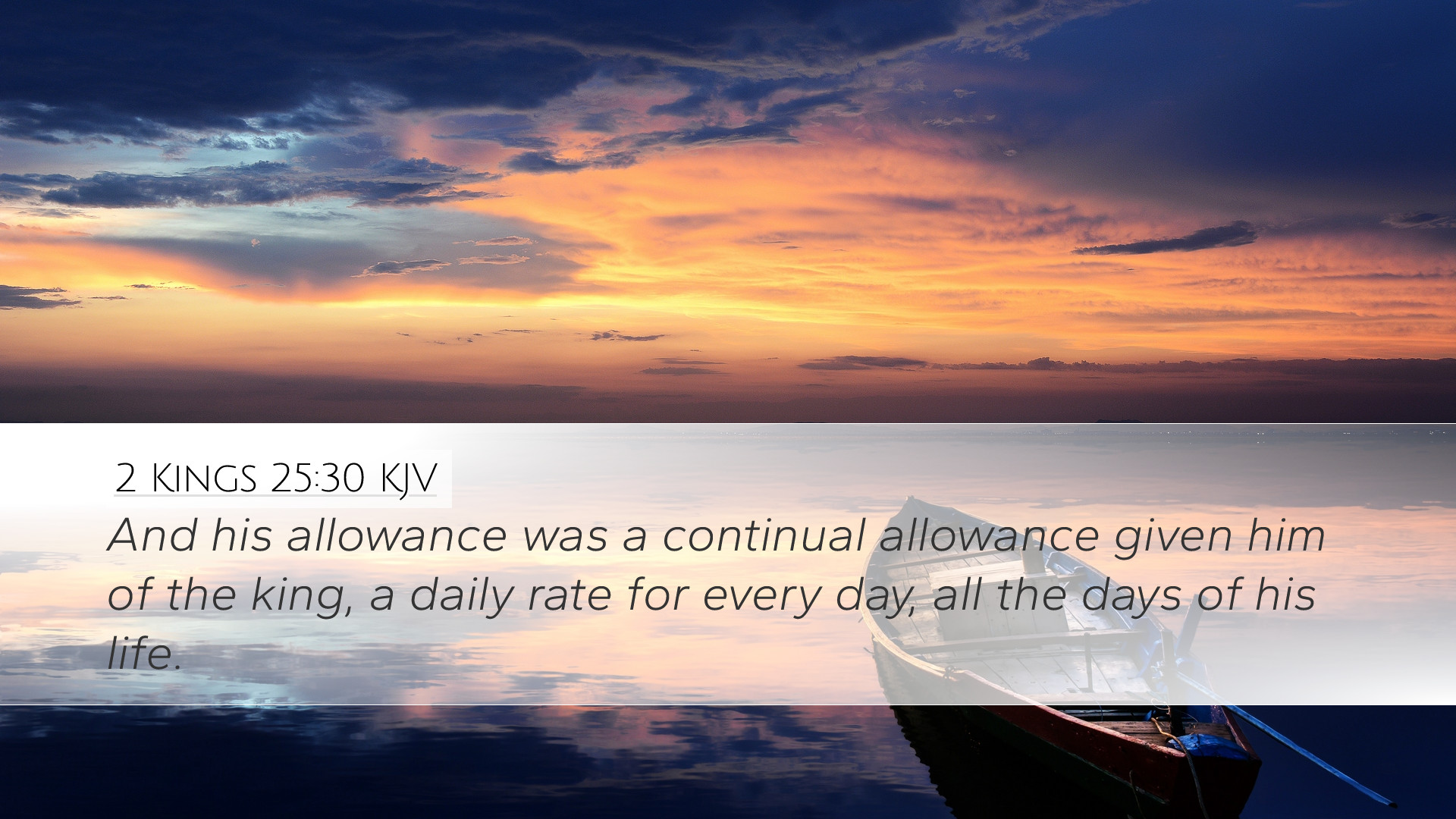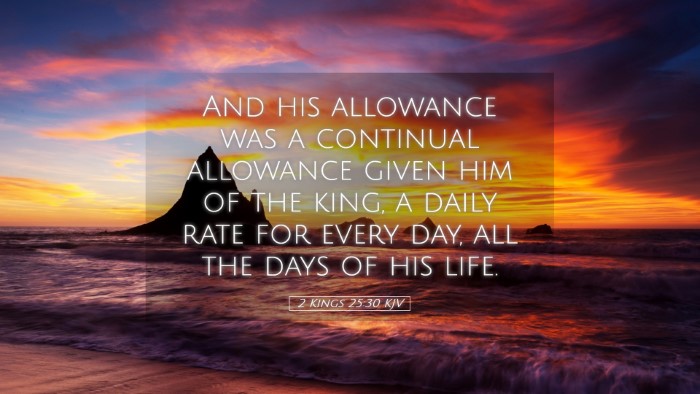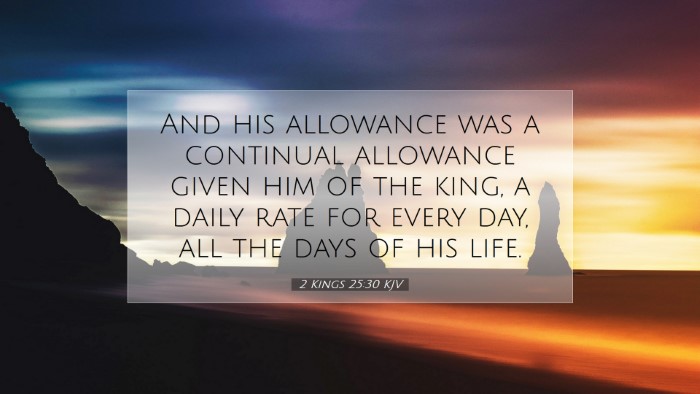Commentary on 2 Kings 25:30
Verse Text: "And his allowance was a continual allowance given him of the king, a daily rate for every day, all the days of his life."
Introduction
This verse provides an insightful conclusion to the narrative of King Jehoiachin, who was taken captive to Babylon. It reflects the shift of power from the Davidic line to the Babylonians, yet it also highlights God's providential care for His people even in exile.
Contextual Background
2 Kings 25 encompasses the final events of Judah's kingdom. Following the siege of Jerusalem, King Nebuchadnezzar of Babylon deposed Jehoiachin and appointed Zedekiah as a puppet king. After Zedekiah's rebellion, Jerusalem fell, culminating in the destruction of the Temple. In this aftermath, Jehoiachin's fate becomes a focal point, illustrating the faithfulness of God amid judgment.
Insights from Commentators
Matthew Henry
Henry emphasizes that God has ways of providing for His people even when they appear most destitute. Jehoiachin’s status as a king is contrasted with his captivity, yet he is granted daily sustenance as a testament to God's mercy and grace. This allowance suggests that despite his fallen state, God still remembers His anointed. It serves as a reminder that no situation is beyond God's provision.
Albert Barnes
Barnes offers a deeper reflection on the significance of Jehoiachin receiving a daily allowance. He stresses that this provision from the king of Babylon symbolizes both a measure of dignity retained and the ongoing relevance of Jehoiachin despite his captivity. Barnes notes that this detail may signify a political strategy by Nebuchadnezzar to keep the former king content and less likely to incite rebellion. Regardless of the motivation behind the king’s actions, it displays an aspect of providence, showing that even in a period of judgment, there remains a semblance of care.
Adam Clarke
Clarke brings attention to the theological implications of Jehoiachin's sustenance. He underscores the importance of understanding the broader covenant relationship between God and His people. The kingship is not merely a political title but is deeply intertwined with God's promises to David. The allowance represents an aspect of God's mercy; it is an indication that His covenant continues even when the circumstances appear bleak. Moreover, Clarke points out that God preserves His remnant, ensuring that there remains a lineage from David's house, affirming His faithfulness to His promises.
Theological Implications
The allowance granted to Jehoiachin serves multiple theological narratives.
-
Grace in Exile: The extent of Jehoiachin’s provision illustrates that exile does not equate to abandonment by God. Even in a foreign land, God continues to provide for His servants.
-
Divine Sovereignty: The arrangement between Jehoiachin and Nebuchadnezzar underscores the sovereignty of God over human affairs. This political maneuver by Nebuchadnezzar was part of God's plan.
-
Promise of Restoration: The ongoing sustenance may reflect the hope for restoration of Israel, suggesting that the Davidic line would not be entirely extinguished, as God has great plans for His people.
Conclusion
2 Kings 25:30 encapsulates a moment of mercy within devastation. For pastors, students, theologians, and scholars, it is essential to glean from this verse that God’s grace can manifest even in the direst of circumstances. The daily provision for Jehoiachin epitomizes God's faithfulness to His covenant, reminding believers that hope can emerge from hopelessness and that God's purposes will ultimately prevail.


